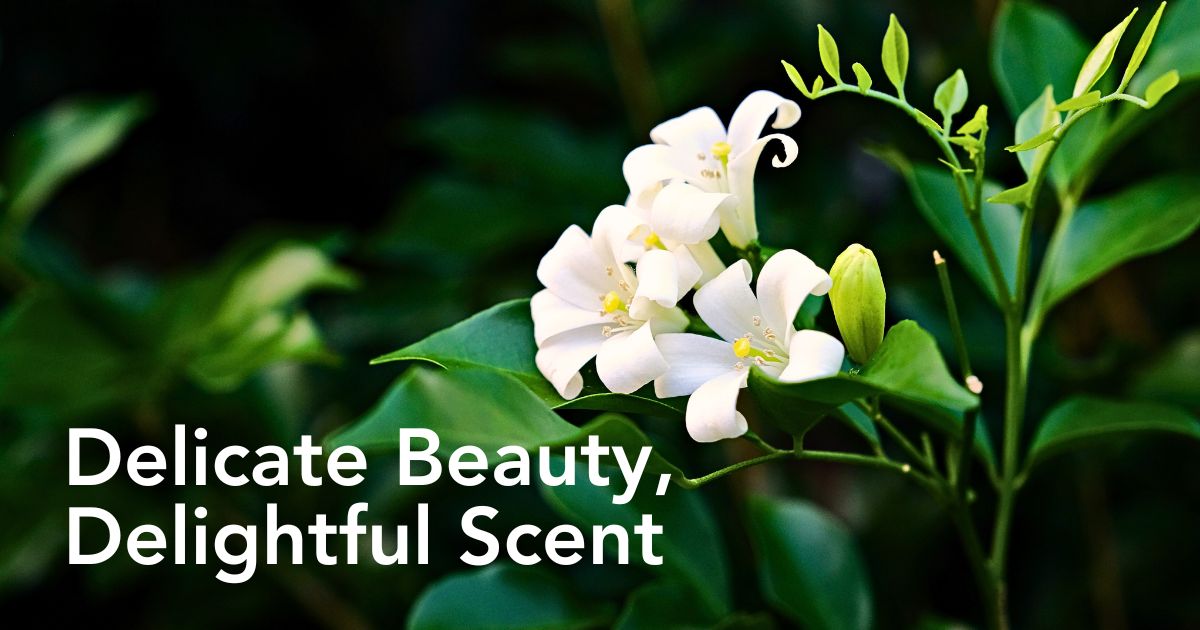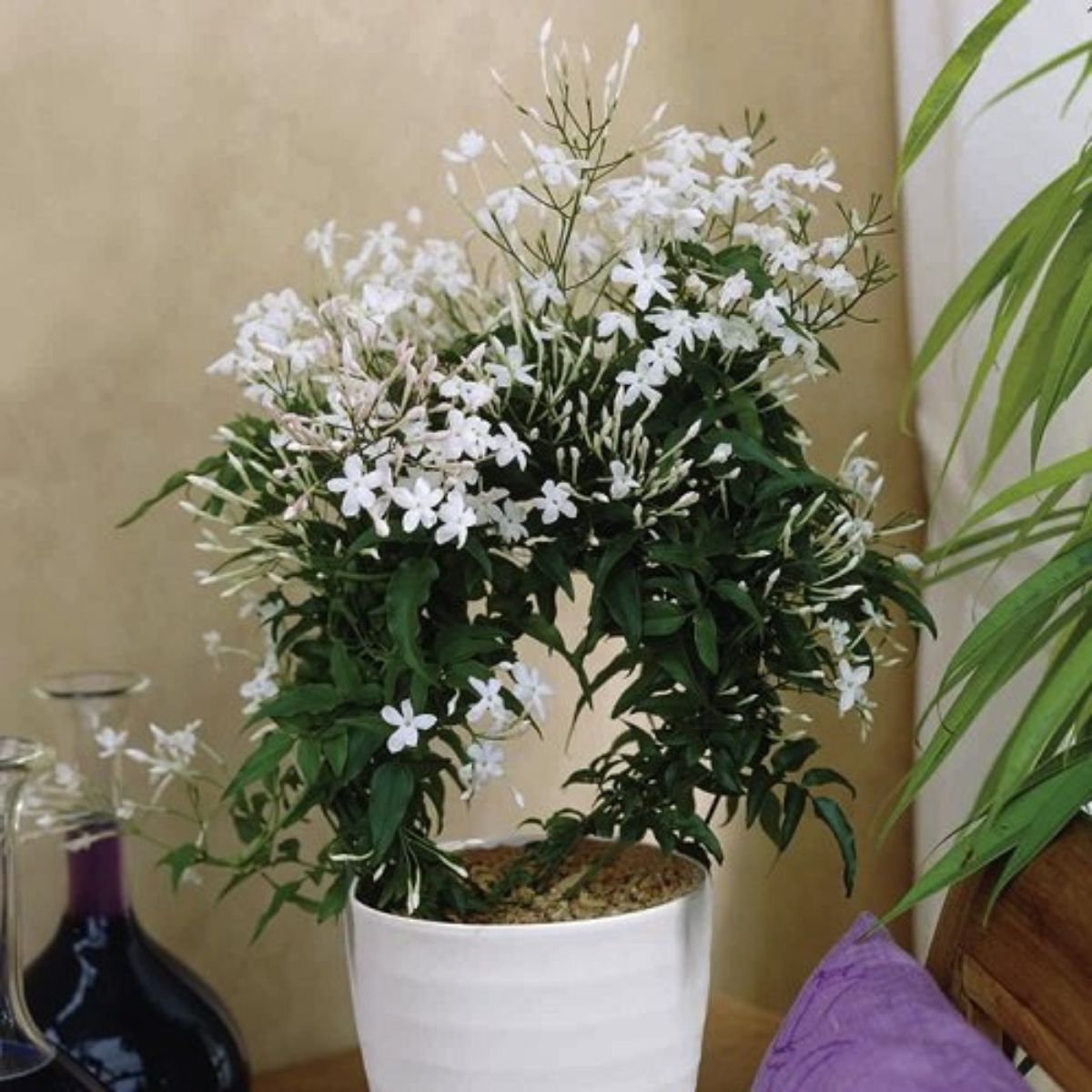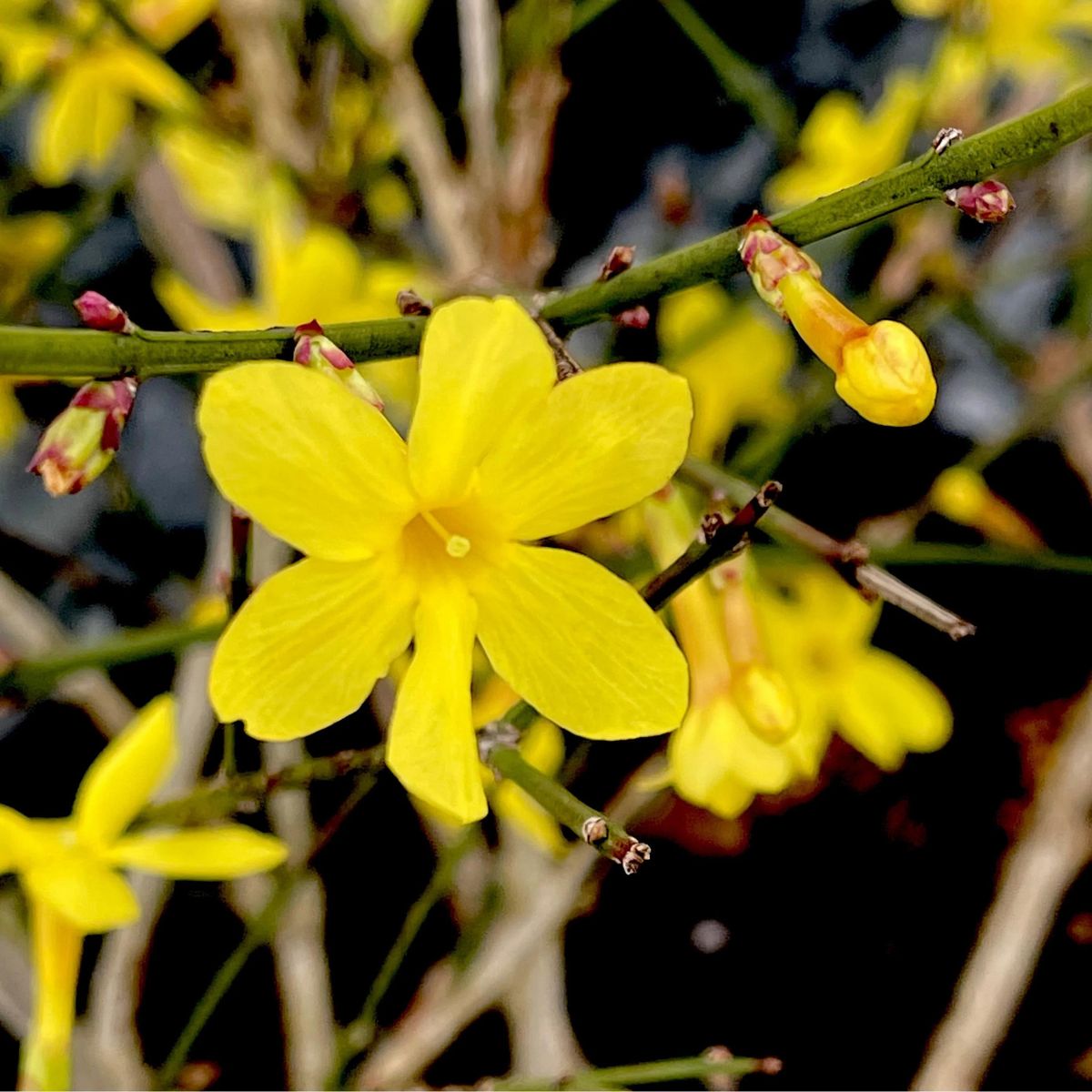Jasmine, a flower so delicate and fragrant! So full of meaning and symbolism. For hundreds of years, this flower has held a distinct place in humans' heart and minds. Its delightful aroma and charming beauty have made the jasmine flower a symbol of practically all that is pure, graceful, and elegant. It has, also, come to embody a love that goes beyond boundaries, cultures, and creeds.
But what does the jasmine flower mean? What more is the symbolism behind this enchanting flower whose intoxicating fragrance and delicate beauty, have fascinated and enthralled hearts and minds for centuries. Well, there's a lot more to this flower than you, perhaps, know; from its use in scents and fragrances to body art and adornments, and its incorporation in home décor and design.
Understanding the Jasmine Flower
Before exploring the symbolic annals and the meaning of the jasmine flower, it would make practical sense to first establish its botanical foundation. Jasmine, also called Jasminum belongs to the olive family, Oleaceae, which covers over two hundred species of shrubs and vines. These plants are primarily native to tropical and subtropical regions of Asia, Africa, and Oceania.
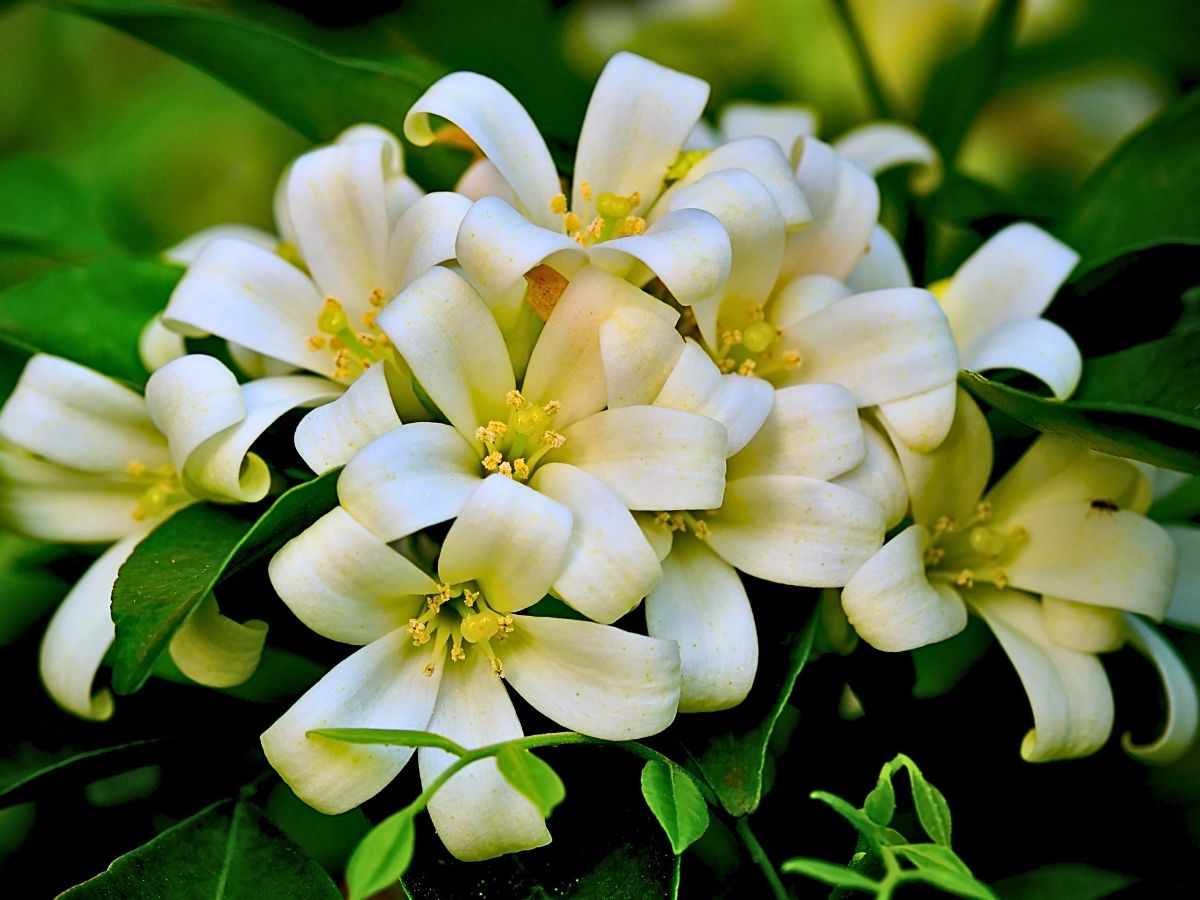
Photo by pisauikan
Jasmine's botanical name 'Jasminum' is derived from the Persian word 'Yasmin', which translates to 'a gift from God'. This nomenclature speaks to the revered status that the flower has held throughout history. It has been celebrated in different cultures and belief systems globally. Chiefly, known for its star-shaped petals and intoxicating fragrance, the flower comes in different shades from pure white to vibrant yellow, each hue carrying its unique charm and allure. The jasmine plant, for its part, is a climbing vine, often seen adorning trellises, arbors, and walls, where it guarantees a touch of elegance and romance.
Characterized by their intensely fragrant flowers, jasmines - which are among the fragrant flowers and indoor plants that will make your home smell nice - exhibit a wide range of colors, though as previously noted, white and yellow are the most common. The star-shaped flowers are typically small and often clustered together in groups, creating a visually striking display. Their intense fragrance, often described as sweet, heady, and intoxicating, is a defining characteristic of the jasmine plant and contributes significantly to its cultural and symbolic importance.
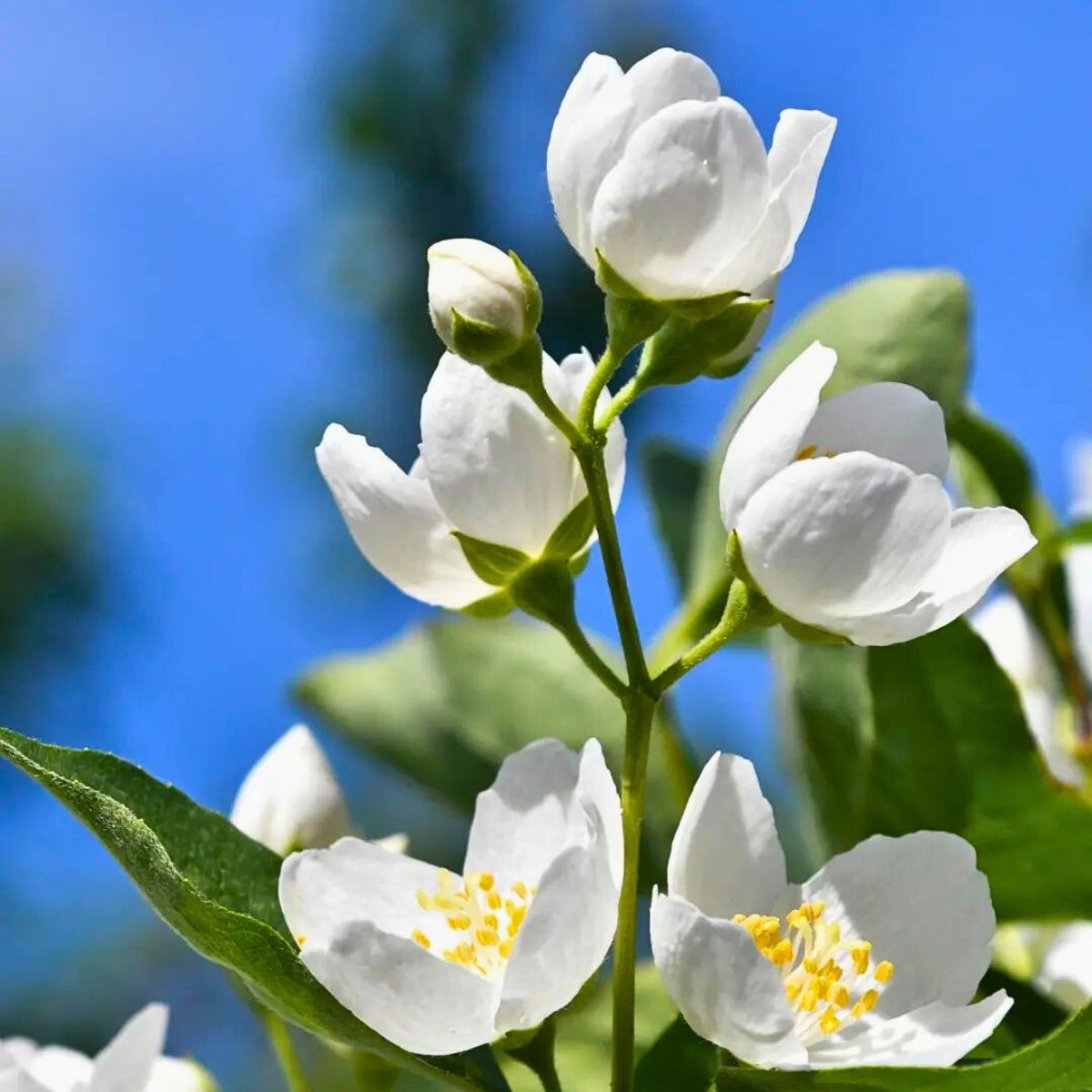
There are different varieties of jasmine flowers which, among others, include the common jasmine, royal jasmine, winter jasmine, Arabian jasmine, dwarf jasmine, wild jasmine, pink jasmine, forest jasmine, lemon-scented jasmine, Italian jasmine, downy jasmine, Jasminum Vahl, coral jasmine, Cape jasmine, night blooming jasmine, day blooming jasmine, and star jasmine. These different jasmine flower varieties vary in their flowering periods and specific fragrance profiles, all of which collectively add to their appeal.
What Does a Jasmine Flower Mean?
Jasmine flower meaning takes on a different interpretations which convey its adaptability as a symbol. Its meanings can be understood in different ways across different parts of the world. But generally, these interpretations revolve around such elements as purity and innocence. In this context, the pristine white blossoms of many jasmine varieties are often associated with pureness, virtuousness, and chastity. This is particularly relevant in religious and ceremonial contexts.
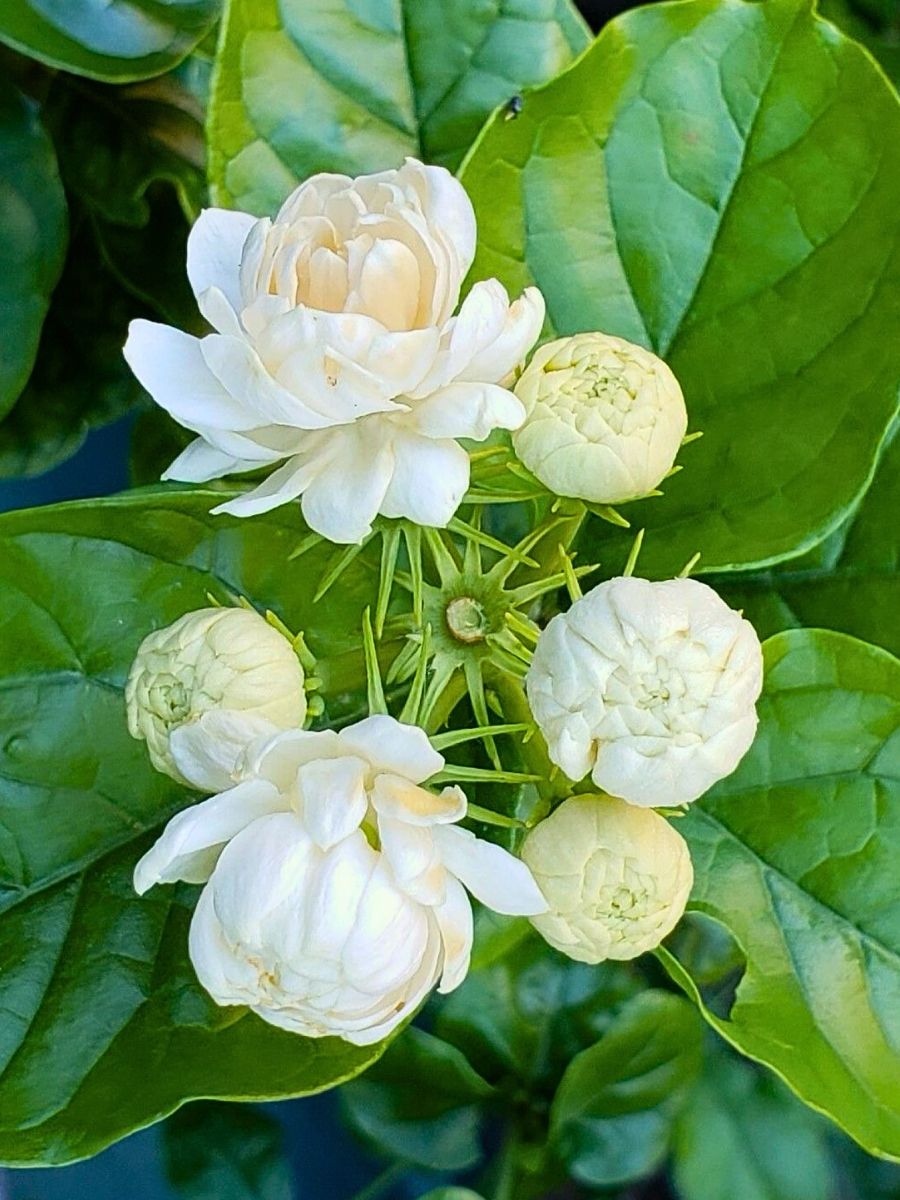
Photo by @mogra.in
The flower also means love and romance. The intoxicating fragrance and delicate beauty of the jasmine flower have for a long time been linked to love, passion, and romance. It is, therefore, a frequent symbol in romantic expressions and wedding celebrations. Jasmines also represent sensuality and passion. Its intense fragrance is often associated with sensuality and heightened emotions, thus it is a potent symbol of desire and attraction. The flower also represents elegance and grace. The delicate form and graceful movements of jasmine vines contribute to its association with refinement, and also feminine beauty.
Jasmine flowers are, likewise, symbolic of spiritual awakening and enlightenment. In many spiritual customs, jasmine is associated with divine growth, enlightenment, and connection to the divinity. Its fragrance is often considered uplifting and meditative. What is more, it also means hope and new beginnings. This is epitomized in the blossoming of jasmine flowers which also symbolize renewal.
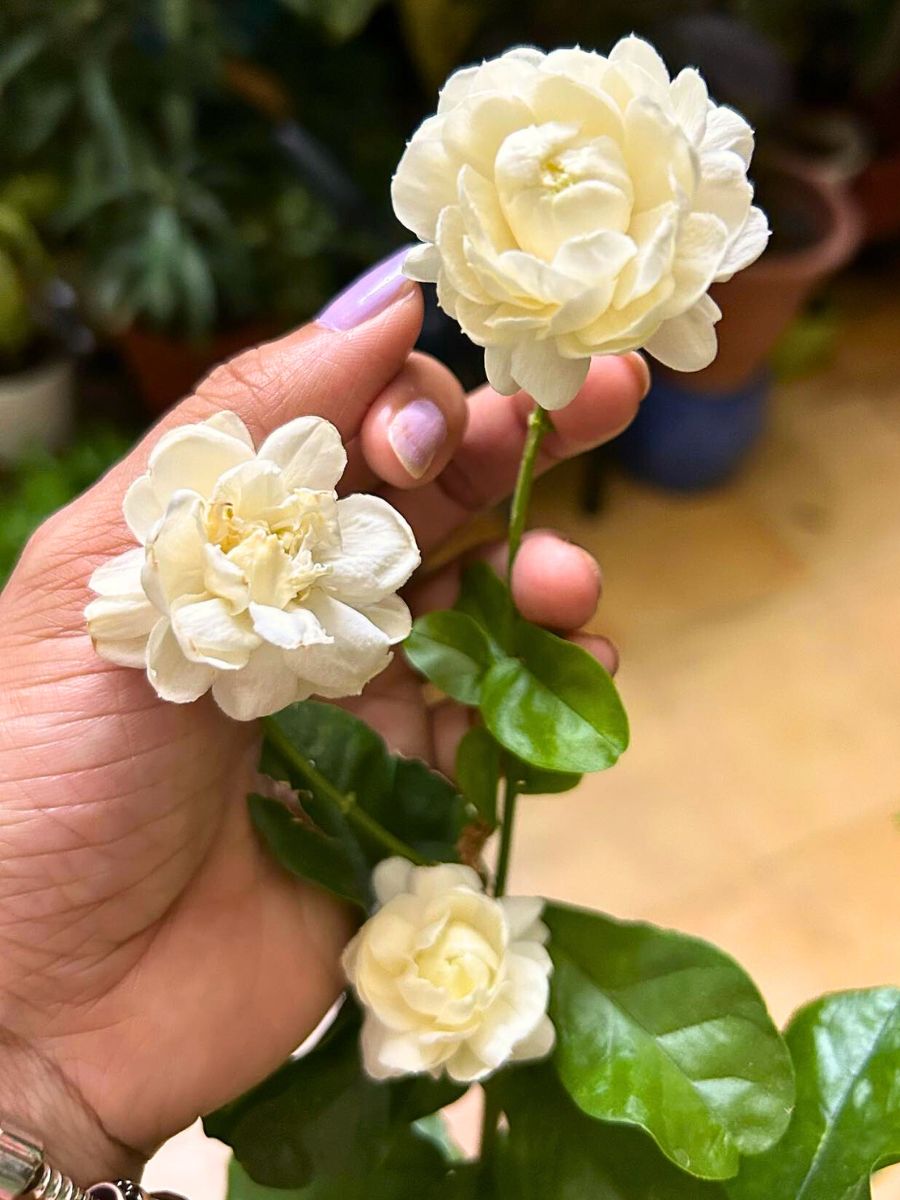
Jasmine Flower Meaning and Symbolism Across Different Regions and Cultures
What is the meaning of the jasmine flower? What are its symbolism in different cultures and societies? Well, across the world, the jasmine flower has been infused with many symbolic meanings. Each reflects the deep cultural and spiritual significance it holds. But by and large, in many traditions, the jasmine flower is seen as a representation of purity, grace, and feminine beauty.
In Hinduism, where it is called Malikka, the jasmine flower is used in the worship of gods and goddesses. According to Hindu scriptures, the jasmine is considered to be one of the five arrows of Kamadeva, the God of love, which he shoots from his bow made of sugarcane. The other four are lotus, Ashoka flower, mango flower, and blue lotus. Many renowned Sanskrit poets, therefore, mention the jasmine flower in their works. Legendary Sanskrit poet Kalidasa, for instance, mentioned the flower in his poem Raghuvamsha, in which he described the newly blossomed, sweet-smelling jasmine. Dandin, another Sanskrit poet, also mentions this flower in his Sanskrit Kavyadarsha.

Photo by @thenewdelhicompany
The jasmine flower is also closely associated with the goddess Lakshmi, the embodiment of wealth, prosperity, and good fortune. The flower is, therefore, often used in worship and religious ceremonies and rituals of this goddess and others. These flowers adorn the deities and the sacred places of worship. The jasmine blossom is also linked to the goddess Saraswati, the patron of the arts and goddess of wisdom, and is believed to bring wisdom, creativity, and enlightenment. Generally, the jasmine flower is ordinarily used in different Hindu rituals in the form of jasmine garlands and other adornments used in religious ceremonies.
In Buddhism, the jasmine flower is revered as a symbol of the purity of the mind and the attainment of nirvana. Buddhists believe that achieving purity of mind is an important step on the path to enlightenment. The gentle petals of the flower are, therefore, said to represent the shedding of attachment and the pursuit of spiritual enlightenment.
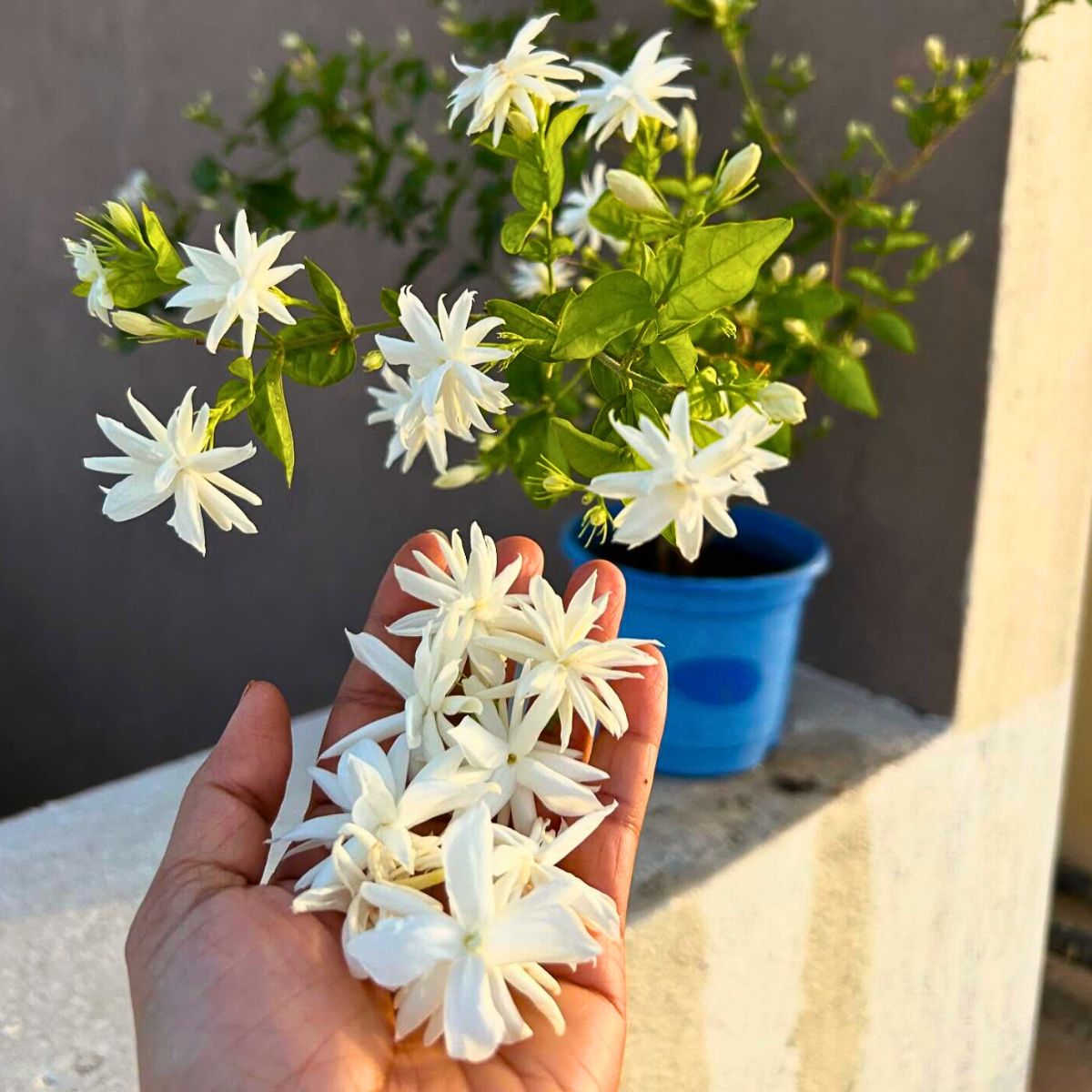
In Islamic tradition, the jasmine flower is, also, an important element. It is mainly highly regarded for its purity. The flower is often used in religious ceremonies and is believed to hold the power to cleanse the soul and promote inner peace.
Still, jasmine flower meaning extends beyond cultural contexts and historical influences. In China, taking jasmine tea is a beloved tradition, and the flower is associated with sensuality, love, and good fortune. It, often, also represents the moon and its ethereal beauty. Elsewhere in Thailand, jasmine represents motherhood and signifies love and respect. Indonesians wear jasmine in their hair as a symbol of good fortune, and in the Philippines, jasmine is a symbol of honor and respect, with dignitaries often presented with wreaths made from this fragrant flower.
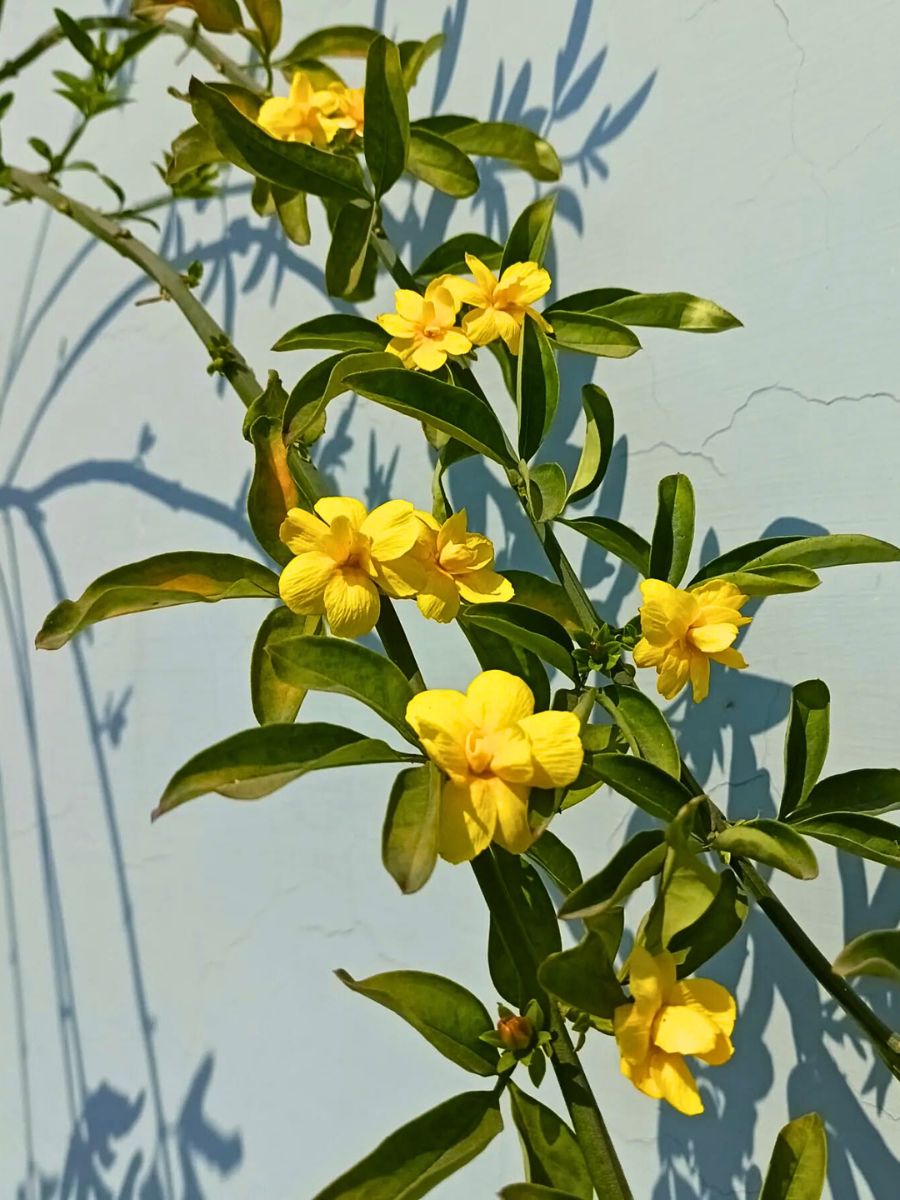
Photo by @plant._.perfect
Generally, across most of Southeast Asia, jasmine is often associated with weddings and celebrations, representing love, happiness, and new beginnings. Comprehensively understanding what a jasmine flower means in these contexts, therefore, requires appreciating the relevant cultural nuances.
The Western world also appreciates the jasmine flower. While not as deeply ingrained in its traditions as it is in Eastern cultures, jasmine still holds significant symbolic weight in Western societies. The white jasmine flower's meaning is often associated with purity, innocence, and new beginnings, mirroring its use in bridal bouquets. Its heady fragrance has linked it to sensuality and passion, thus a popular choice for perfumes and romantic settings. The jasmine flower's spiritual meaning in the West every so often centers on its ability to evoke feelings of tranquility, peace, and inner harmony.
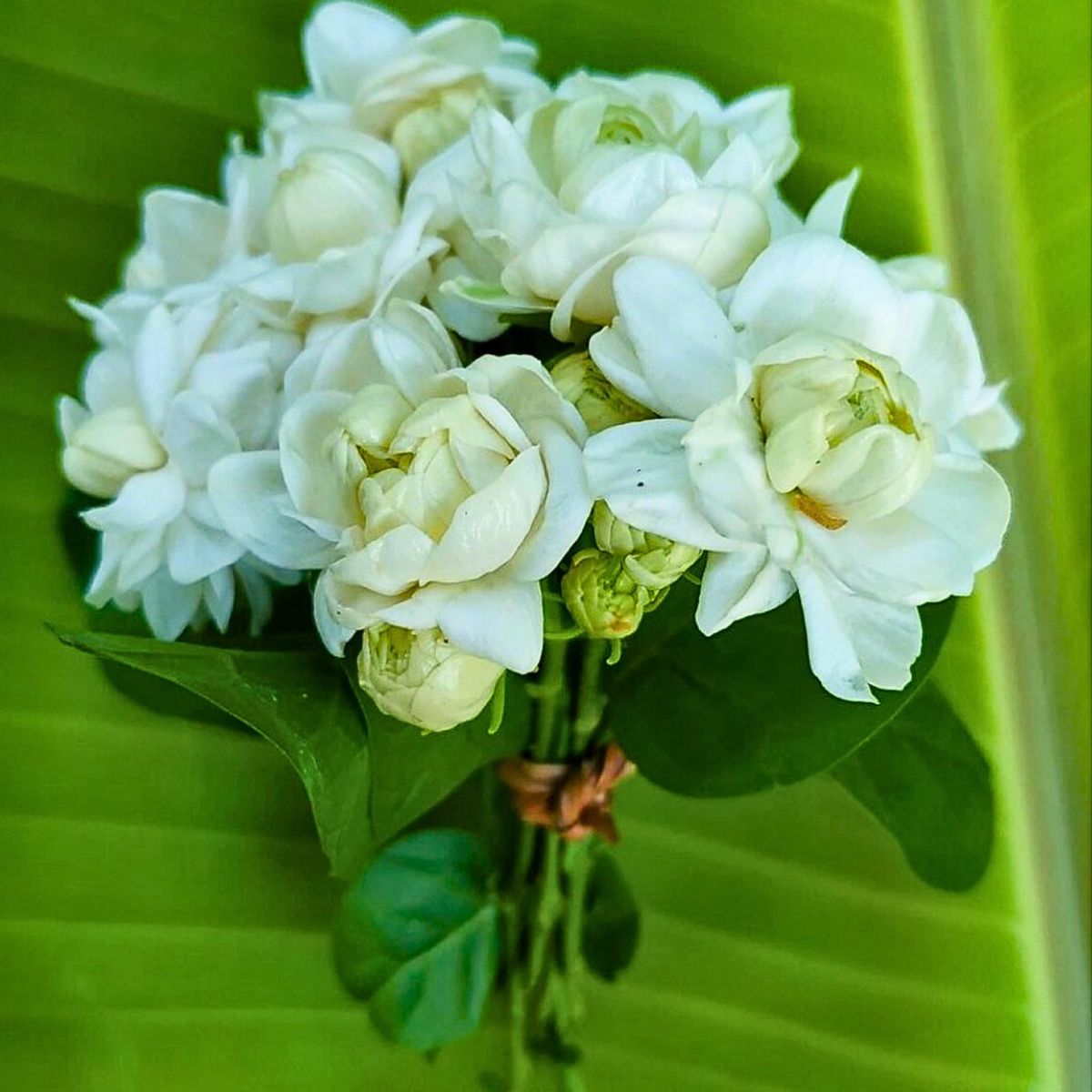
Jasmine has, also, been taken as a symbol of love, sensuality, and grace, all of which are qualities attributed to the flower's delicate beauty and intoxicating fragrance, which have long been linked with romantic love. It is, therefore, a popular choice for wedding bouquets and decoraitons.
Worth mentioning is that the jasmine flower's heady aroma is believed to be processed by the olfactory bulb, which lies at the bottom of the brain, next to amygdala and the hippocampus - both of which help process emotion and memory. This may explain why the flower has become such as powerful symbol in much of the world.
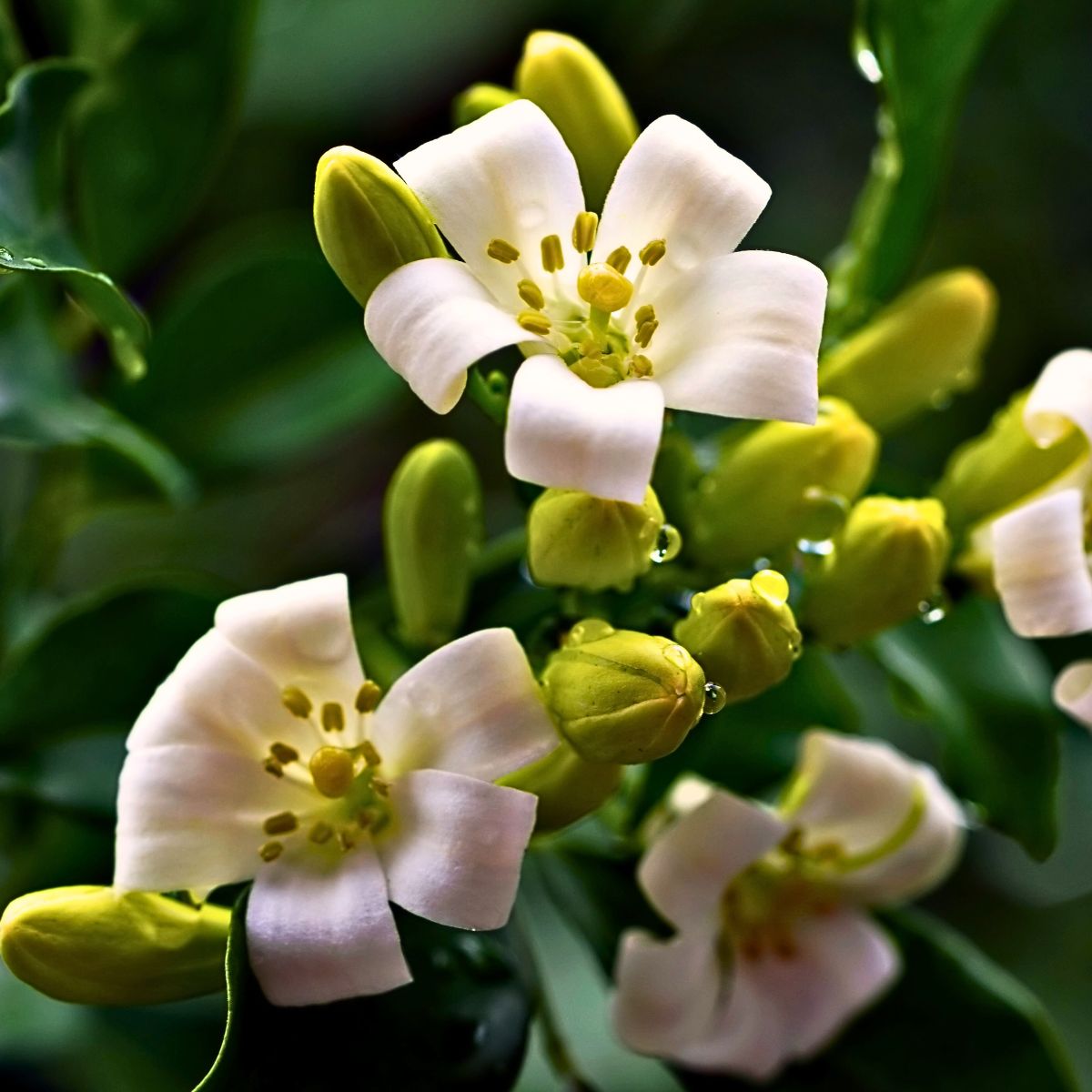
Jasmine Flower Tattoos
Jasmine flower tattoos have become increasingly popular, as people seek to immortalize the flower's symbolic meaning on their bodies. They are a popular choice for those seeking a beautiful and meaningful design. A jasmine flower tattoo may, therefore, represent many things to different people.
One may, therefore, ask what does a jasmine flower tattoo mean? Well, for many, a jasmine flower tattoo represents the pursuit of purity, spirituality, and inner growth. Its petals and graceful form are often used to symbolize the tattoo wearer's journey toward self-discovery, personal transformation, and detachment from negative emotions or attachments.
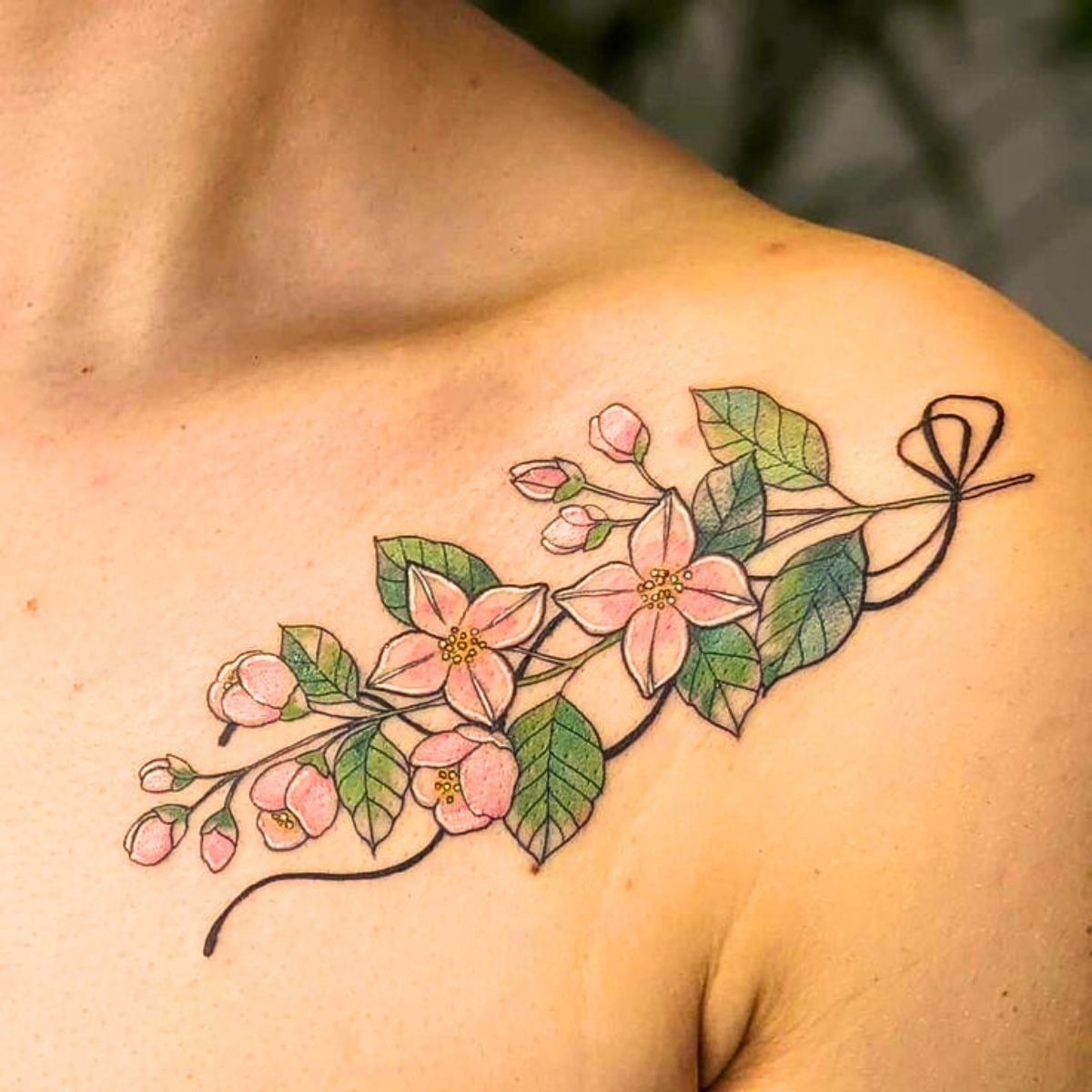
Others may choose a jasmine flower tattoo as a tribute to their cultural or religious heritage, honoring the significance of the flower in their respective traditions. The tattoo can as a result be a visual cue of the wearer's commitment to their faith, values, and the teachings that have shaped their lives.
In some cases, a jasmine flower tattoo may represent the memory of a loved one, with the flower's fragrance and beauty being a reminder of the unforgettable connection. The tattoo can, in this case, be a deeply personal and meaningful symbol; a permanent witness to the bond shared and the memories that remain etched on the wearer. At the end of the day, however, what a jasmine flower tattoo does mean is determined by the individual wearer.
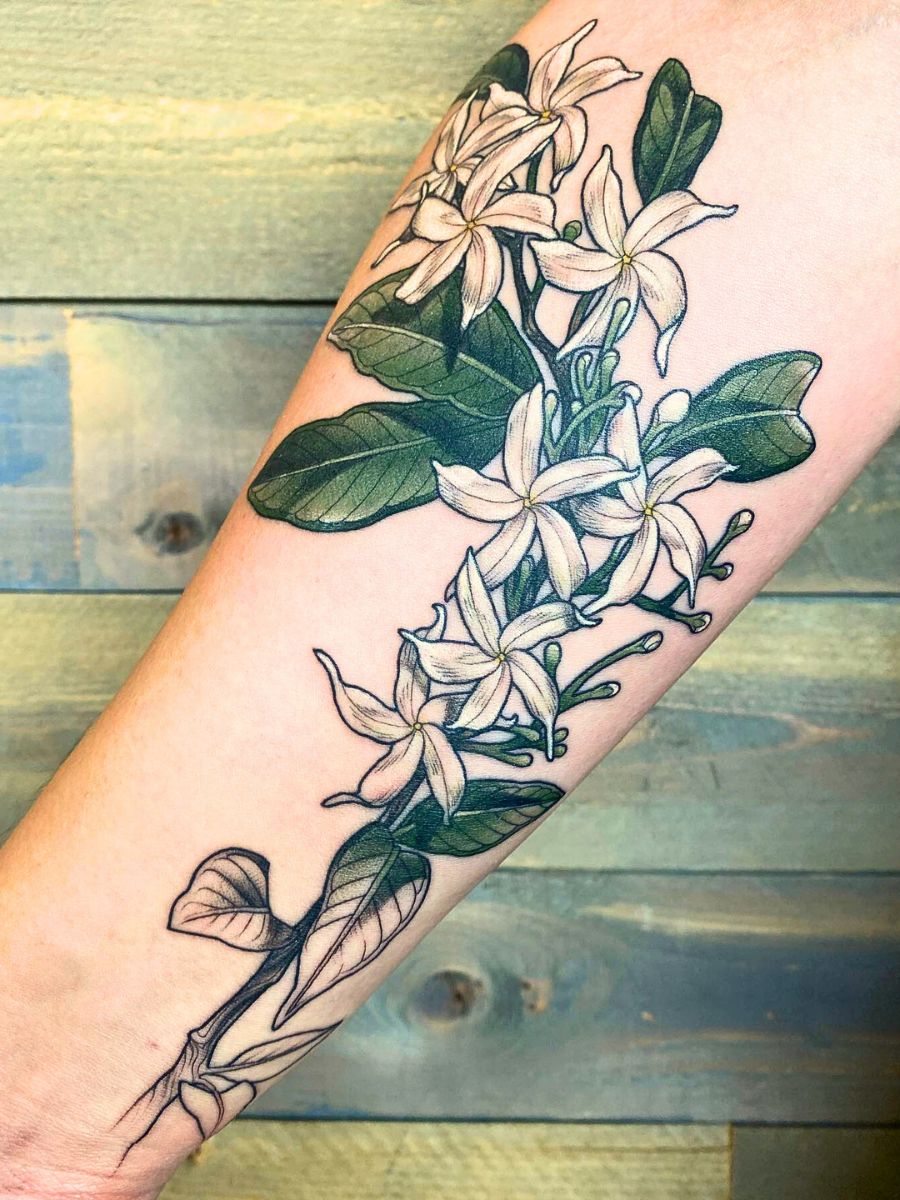
Incorporating Jasmine Flowers Into the Home, Decor, Designs, and Others
The jasmine flower's charm is not just restricted to its symbolic meanings and significance; it is, also, a resourceful inclusion in home decor and design, floral arrangements, and even ornaments for festivities. Jasmine flowers can be grown as houseplants, where they add beauty and fragrance to the home. Their subtle beauty and the fragrance that accompanies them have made them a favorite for incorporation into different living spaces and design elements.
For instance, the common jasmine or Poet's jasmine (Jasminum officinale), a deciduous vine with clusters of starry, pure-white flowers that bloom all summer, is a twining climber with rich green leaves and highly fragrant flowers that are up to an inch in diameter. This flower can be an ideal addition to the home decor. On the other hand, the winter jasmine (Jasminum nudiflorum) is an old-timey shrub often found around Victorian homes. Its beautiful yellow flowers are rather unscented and appear towards the end of winter or early spring. It, nonetheless, still provides cherry cheery blooms that bring cheer to the home during the cold winter months.
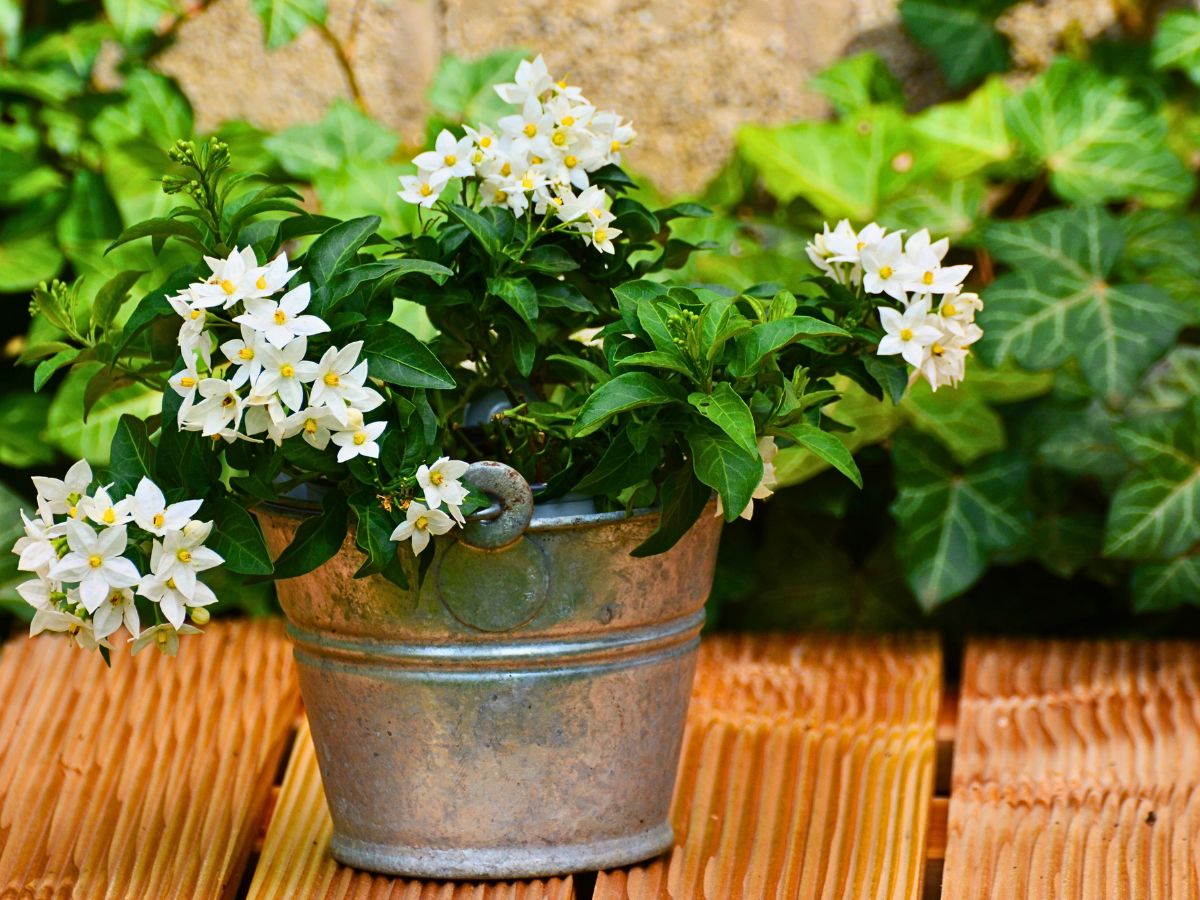
Still in the home, jasmine flowers can be used in a variety of other ways. Placing jasmine blossoms in vases or small bowls around the house can fill the air with a soothing, calming aroma that induces a sense of tranquility and relaxation. The flowers can also used to adorn dining tables, coffee tables, or even as part of larger floral arrangements, thus adding a touch of natural beauty to the space.
Jasmine flowers can also be found in design creation in the form of jasmine-inspired patterns and motifs. These have increasingly become popular in textiles, wallpapers, and even architectural elements. The flower's elaborate, star-shaped form beautifully lends itself to equally intricate and visually eye-catching designs, which can be incorporated into a wide range of interior and exterior spaces.
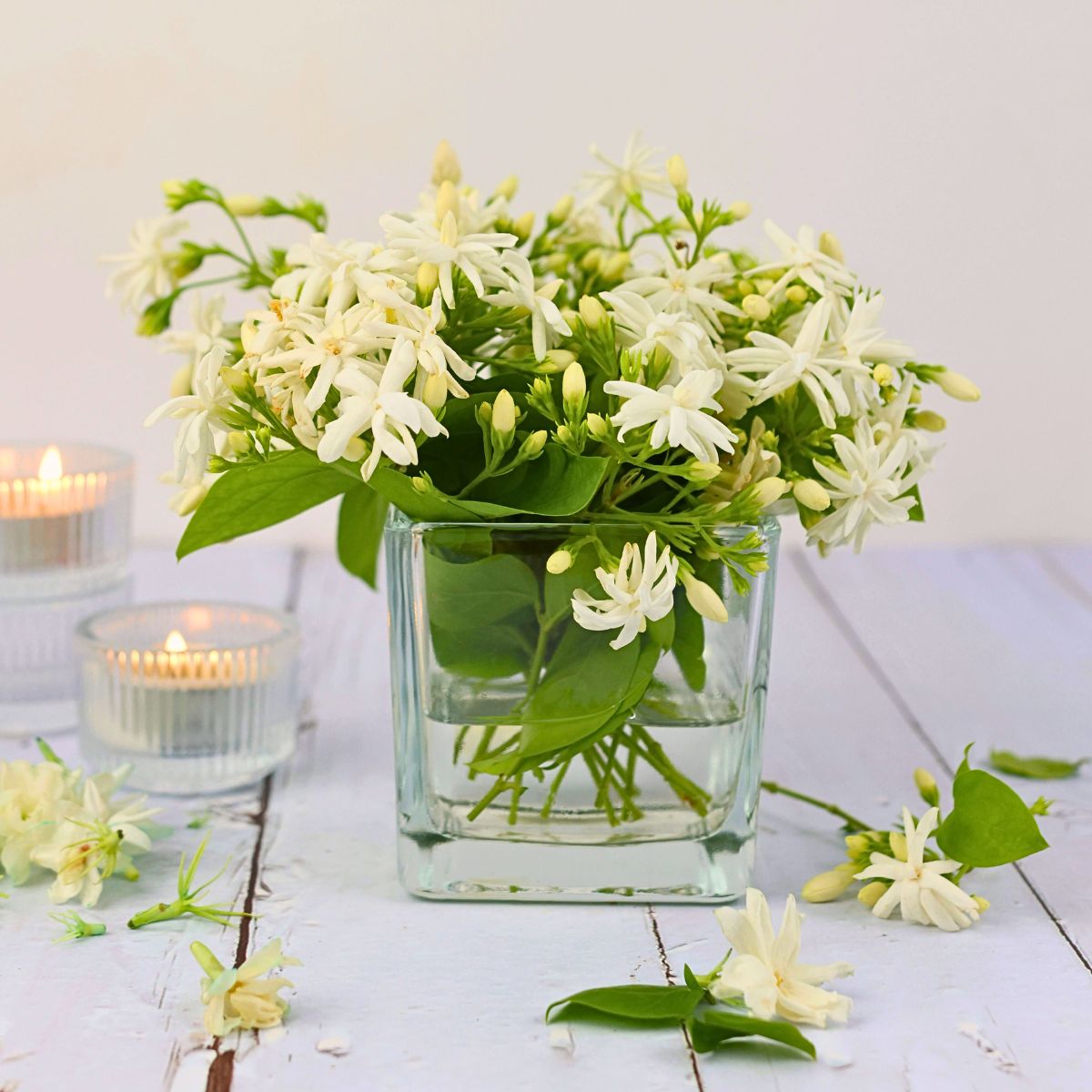
In the floral fragrances and scent world, jasmine is one of the most sought-after and iconic scents. The flower's distinctive aroma has, in varied ways, been captured in a variety of perfumes, candles, and essential oils, which allows people to bring the true essence of the jasmine flower into their personal spaces and lives. So, why not try out any of the many uses of this fragrant flower, and, perhaps, explore its rich symbolism and meanings?
Feature image by Nay Nyo, header image by ignartonosbg.

